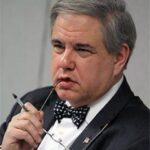Five hundred fifty years ago today, on October 26, 1515, Desiderius Erasmus was born. Actually, although many historians think he was born on the 26th, some scholars think he was born on October 27th or even the 28th. I’ll celebrate them all, and that means that I’ll start today.
He is known to history as “Erasmus of Rotterdam”, although some scholars think he was born not in Rotterdam but in Gouda. Everyone agrees that it was in Holland and, since Rotterdam doesn’t have a signature dairy product, I always celebrate his birthday with a favorite dense, yellow, red-rinded cheese that comes from the smaller town down the road.
Immortalized by the famous portrait by Hans Holbein the Younger, the perpetual Erasmus — scholar, priest, the “Prince of the Humanists” — remains forever the advocate of free will in a stormy world of resigned fatalists and pre-destinators; ever the loyal churchman even as he criticized the sins, errors, and excesses of leaders of his church, he was capable of powerful satire — see his Julius Exclusus on the shock awaiting a pope upon his arrival at the Pearly Gates — and even more powerful self-satire — see his Moriae Encomium (accessible as The Praise of Folly in countless English editions since at least the 17th century, including the splendid fresh translation done in 1979 by Clarence H. Miller).
Erasmus was a careful student of text, and would have found modern American legal originalists as companions in arms. He was a lover of learning in all its fields, and mastered many modern and ancient languages, working hard over his lifetime to make vital texts available to modern minds. He was an early advocate of religious tolerance and free speech and, as a champion of academic freedom in the Europe of the 16th century, would have been aghast at the 21st century mori who seem to be willing to throw such hard-won freedoms away in exchange for a porridge of conformist comforts and intellectual “safe spaces”.
Erasmus was a close, personal friend of Thomas More and, in fact, Moriae Encomium was written during the course of his stay as More’s houseguest at Bucklersbury, a site I’ve been privileged to visit many times. “Moriae Encomium” could translate as “praise of More” as well as “praise of folly”, and the title pun is fair advertising for the puns and wordplay that leaven the body of the work. Clarence Miller, the translator I commended above, was the executive editor of the massive Yale University project that produced a complete English collection of all of More’s works (whether originally written in Latin or in Tudor English). Miller, a Harvard Ph.D., whose skills in Greek and Latin are surely as formidable as were those of Erasmus and More, is still in productive harness at age 86 or so, teaching on the emeritus English faculty at St. Louis University, his undergraduate alma mater.
Think of what an era it was when More and Erasmus were alive: Across the Channel, which they both traversed with frequency that was surprising for the time, Martin Luther was preaching in Germany; Niccolò Machiavelli was practicing politics and writing about it in Italy; and Columbus was making his several transatlantic voyages. Johannes Gutenberg had died not quite 50 years before Erasmus’s birth, and the printing press and other technological innovations were making travel and communications among lands and nations increasingly achievable. The possibility — indeed, the likelihood, and in some cases the certainty — that all of More, Erasmus, Luther, Machiavelli, and Columbus — were aware of each other and of each other’s work is marvelous to contemplate. (One of few comparable ages graced by a stunning constellation of contemporaries was the late 18th century in America and Britain, with George Washington, Benjamin Franklin, John Adams, Thomas Jefferson, James Madison, Edmund Burke, Samuel Johnson, William Blackstone, and Adam Smith all overlapping in life and all, to some extent or another, influencing each other. Or think of the middle of the 20th century: Churchill, Roosevelt, De Gaulle, Hitler, and Stalin. There were giants — and monsters — in the earth.)
As a schoolboy I had a pet hamster I named Erasmus — it’s a long story, but it had to do with a shared interest in consuming (in our distinct ways) a certain book and (in the same way) a certain cheese. Erasmus once said, “”When I have a little money, I buy books; and if I have any left, I buy food….” My hamster, in his way, followed that philosophy. Shared interests and a nearly-shared October birthday have made me a lifelong amicus Erasmi, and I am pleased to tip my cap to him today.
And now an advertisement: This year marks the 500th anniversary of the publication by Erasmus’s friend, Thomas More, of his famed work, Utopia. I will speak in criticism and appreciation of Utopia at the December monthly luncheon meeting of my friends at Catholic Citizens of Illinois, on Friday, December 9, 2016, at 11:45 a.m. at the Union League Club of Chicago. (That Catholic Citizens finds a seat on its Board of Advisors for a practicing Jew is a testament to its fidelity to the spirits of Fr. Erasmus and St. Thomas More.) More information on the Catholic Citizens program will be found on its website, here: http://catholiccitizens.org/press/67906/december-9-2016-catholic-citizens-luncheon-feature-joseph-morris/
Happy Erasmus Day!





